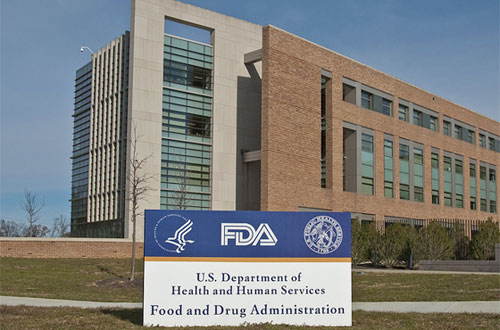
The US FDA’s traditional flurry of activity as the year draws to a close has included approvals for Novartis’ Cushing’s disease treatment Signifor and GlaxoSmithKline’s raxibacumab for inhalational anthrax.
Novartis’ injectable somatostatin analogue Signifor (pasireotide diaspartate) was given the go-ahead for the treatment of patients with Cushing’s disease who cannot be helped through surgery, an indication for which the drug has already been approved in Europe.
Cushing’s disease is caused by over-production of cortisol, and patients with the syndrome tend to have increased weight, glucose intolerance or diabetes, high blood pressure, easy bruising, and increased risk for infections.
Signifor’s efficacy was demonstrated in the phase III PASPORT-CUSHINGS trial, with a 900mcg dose halving levels of cortisol in the urine of 41 per cent of patients. A similar reduction was recorded in 34 per cent of patients taking a 600mcg dose.
The drug is a successor to Novartis subsidiary Sandoz’ older drug Sandostatin LAR (octreotide), which remains a big seller for the group, with worldwide sales rising 12 per cent to reach $1.2bn last year. In addition to Cushing’s syndrome, Signifor is also being developed to treat the rare endocrine disorder acromegaly.
The FDA is requiring three post-marketing commitments for Signifor as a condition for approval, namely: a clinical trial to assess high blood sugar management; a long-term registry study of patients with Cushing’s disease treated with Signifor; and focused safety monitoring for reports of serious high blood sugar, acute liver injury, and adrenal insufficiency.
Meanwhile GSK was given a green light by the FDA for raxibacumab, a treatment for anthrax infections caused by breathing in the bacterium Bacillus anthracis. According to the approval, the drug should only be used when alternative therapies are not available or not appropriate.
Raxibacumab is a monoclonal antibody that neutralises toxins produced by B. anthracis that can cause massive and irreversible tissue injury and death, and was developed by GSK subsidiary Human Genome Sciences in collaboration with the US government.
Interestingly, it is the first monoclonal antibody approved under the FDA’s Animal Efficacy Rule, which allows efficacy findings from adequate and well-controlled animal studies to support FDA approval when it is not feasible or ethical to conduct trials in humans. GSK and HGS did however conduct safety studies using 326 healthy volunteers.
“In addition to antibiotics, raxibacumab will be a useful treatment to have available should an anthrax bioterrorism event occur,” said the FDA’s director of antimicrobial products Edward Cox.




